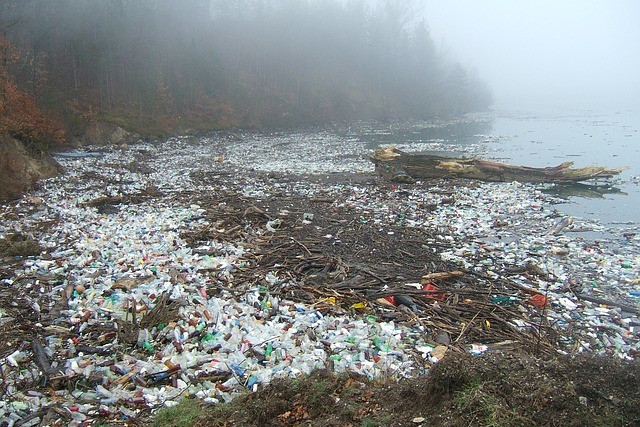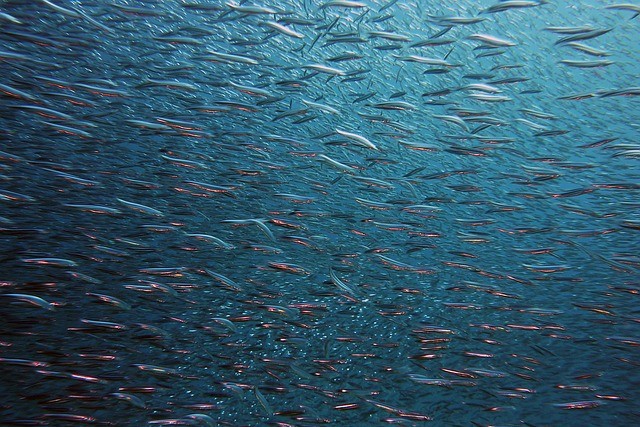10 Ways to Reduce Your Plastic Footprint
Did you know that almost every piece of plastic ever made is on the planet in one form or another? Or that there are 5.25 trillion pieces of plastic debris in the ocean? Plastic waste in our oceans has serious ecological, human and economic impacts. We must work collectively to curb our plastic problem, before it’s too late. We’ve provided a top ten list of ways to reduce your plastic footprint this World Water Day.
1. Avoid Single-Use Plastics
Did you know that 63 billion gallons of oil is produced every year just to supply the US with plastic water bottles? And more than 90 of these are used only once. When shopping, make the conscious decision to avoid purchasing single-use plastics, such as plastic straws, bags, ziplock, diapers and gum. In the grocery store, avoid liquid laundry detergents in plastic bottles, juices, sodas, the frozen foods section and processed foods sections. If you must buy items wrapped in plastic, buy in bulk.
2. Invest in re-usable items
The opposite to single-use? Re-usable items. Next time you hit the gym, pack a stainless steel bottle instead of purchasing a plastic one. Pack your lunches in glass Tupperware. Brush your teeth with a bamboo toothbrush. Purchase razors with replaceable blades.
3. Buy from local markets
Choosing to shop at your local market will not only eliminate all packaging as in grocery stores, but you’ll be supporting local farmers, eating the best produce and won’t be supporting imported goods that have travelled unnecessary miles and exploiting workers. Bag your items in a re-usable bag and return containers when finished to the markets for re-use.
4. Plant your own veggie garden
Planting your own vegetable garden is good for your health, will save you money, give you a new appreciation for nature whilst simultaneously bettering the environment. Growing your own fruits and vegetables means less plastic waste consumed in the supermarket, from plastic wrapping and bagging of items to the small plastic stickers on apples.
5. Avoid exfoliators with micro-beads
The micro-beads in facial exfoliators make up the majority of micro-plastics waste wreaking havoc on marine life, lodging itself in animal’s stomachs and eventually making it back into our food chain, sinking to the bottom of the ocean and washing ashore beaches. Richard Thompson, a marine biologist at University of Plymouth made a finding that four times the amount of microplastic fibres found on the sea’s surface gather on the ocean floor. Avoid facial cleansing products with the ingredients “polypropylene” and “polyethylene” in them.
6. Build a ‘Precious Plastic’ machine for your home
Dave Hakkens came up with an idea to reduce plastic waste after he found out only 10 per cent of the plastic waste we produce each year is recycled. He invented an affordable and size appropriate machine which breaks down plastic, allowing it to be recycled. Hakken’s aim was to empower ordinary citizens all over the world to build his machine, turn plastic waste into something valuable, start a business and whilst cleaning up the environment all at the same time. You can download the blueprints and instructional videos on his website.
7. Opt for a minimalist lifestyle
A great way to cut back on plastic product is to stop consuming unnecessary products entirely! Challenge yourself with a ‘minimalist’ lifestyle. Our current consumer culture promotes an unhealthy reliance on obtaining ‘things’ in exchange for happiness. Unleash yourself from the shackles of capitalism, materialism and debt. Minimalism is about curbing any unhealthy or unnecessary spending, limiting your possessions to items of value, whilst helping the environment. Check out The Minimalist for more details on how to adopt a minimalist lifestyle.
8. Reach out to local businesses
Does your local café or business use plastic take-away boxes, cutlery and cups? Does your grocery store promote unnecessary plastic bagging of items or excessive plastic wrapping of fruit? Reach out to your local business and tell them to ditch the plastic and suggest they use brown paper bags or cardboard instead.
9. Make businesses responsible for their own plastic
Did you know in 1991, Germany became the first country in the world to pass packaging laws which forced manufacturers to be held responsible for the recycling and disposal of any packaging material they produced and sold? Plastic water bottle vending machines are set up across the country, where residents can return their used plastic bottles for recycle and re-use. The vending machines transport the bottles to their appropriate manufacturer based on the barcode. The consumer is granted a 25c reward. Germany showed the world how a profit can be made from recycling plastic. Send an e-mail or lodge a request to your local business to make them responsible for the recycling of their own plastic.
10. Lobby to your government to ban plastic
Send an e-mail or start a petition urging your government to ban all plastic. Let them know plastic is not tolerable. Countries like Rwanda have already made plastic their number one priority after assessing its’ impact on the environment, banning all plastic and only manufacturing brown paper bags.
Resources:
- Katsnelson, Alla. “News Feature: Microplastics Present Pollution Puzzle.” Proceedings of the National Academy of Sciences18 (2015): 5547-549. Web.
- Parker, Laura. “Ocean Trash: 5.25 Trillion Pieces and Counting, but Big Questions Remain.”National Geographic. National Geographic Society, 13 Mar. 2017. Web. 21 Mar. 2017.




Pingback: Plastic pollution: how it affects our oceans - Soulful Concepts
Pingback: Soulful Concepts – Sustainable Travel – Eat My Thoughts